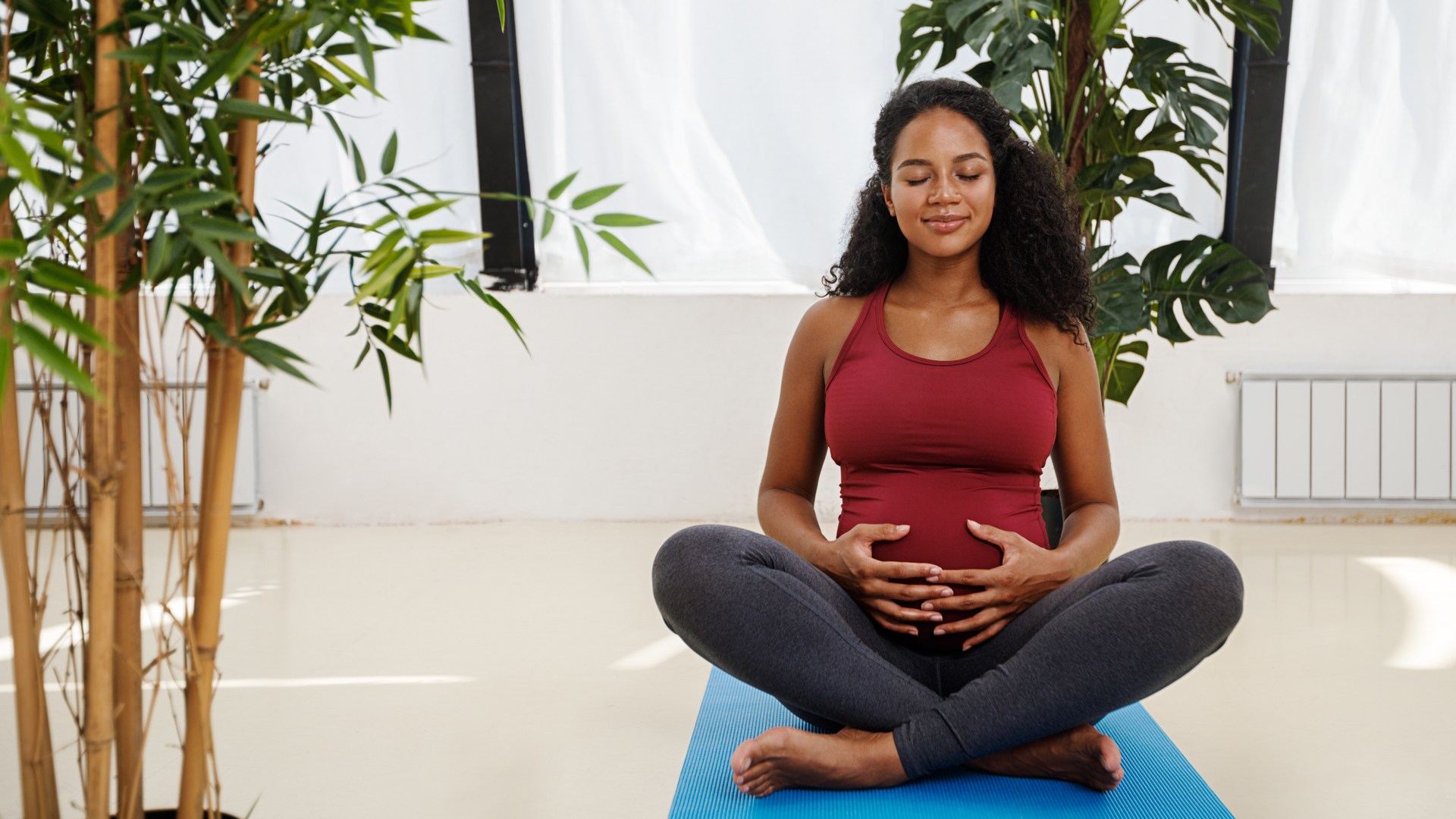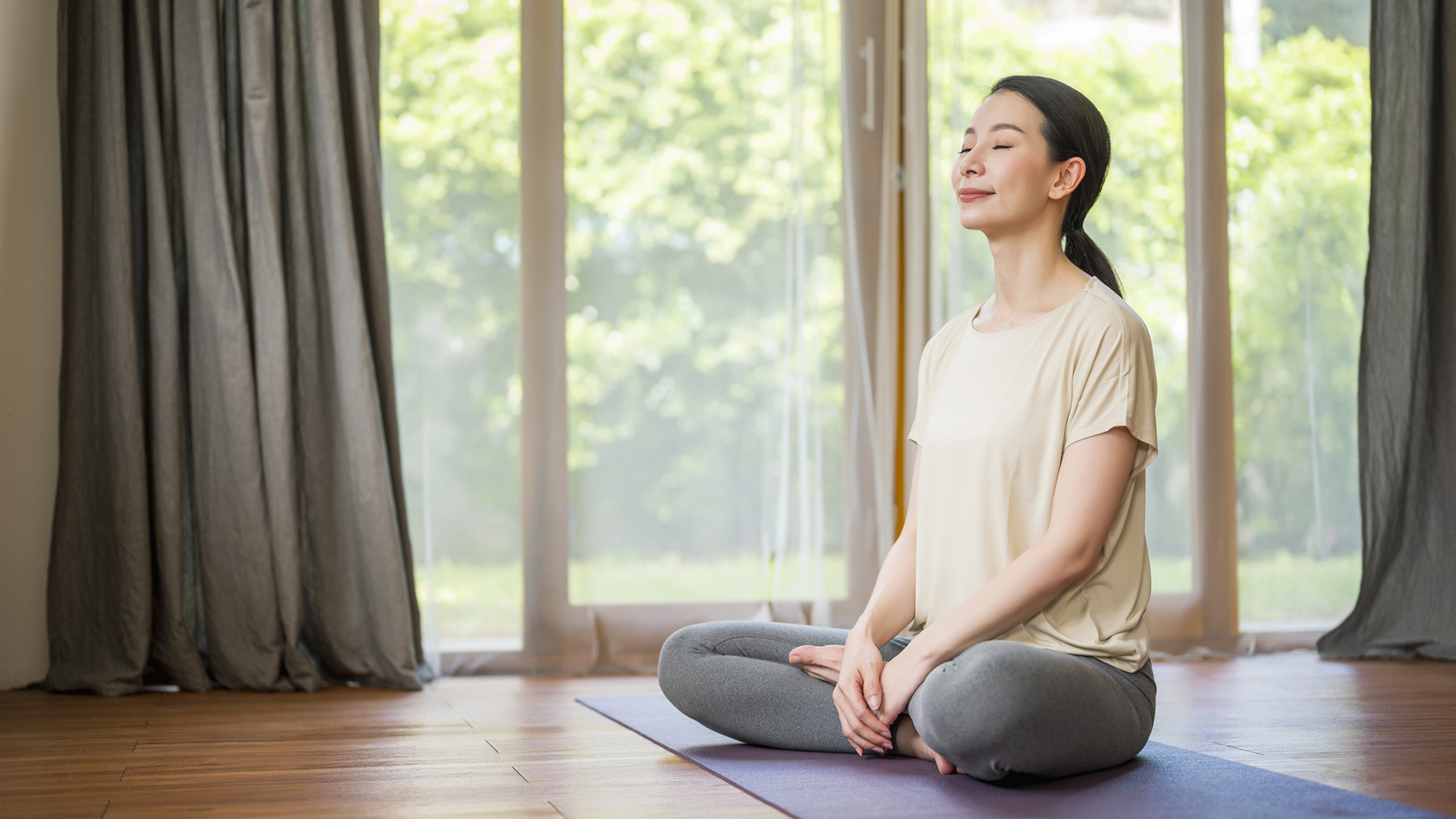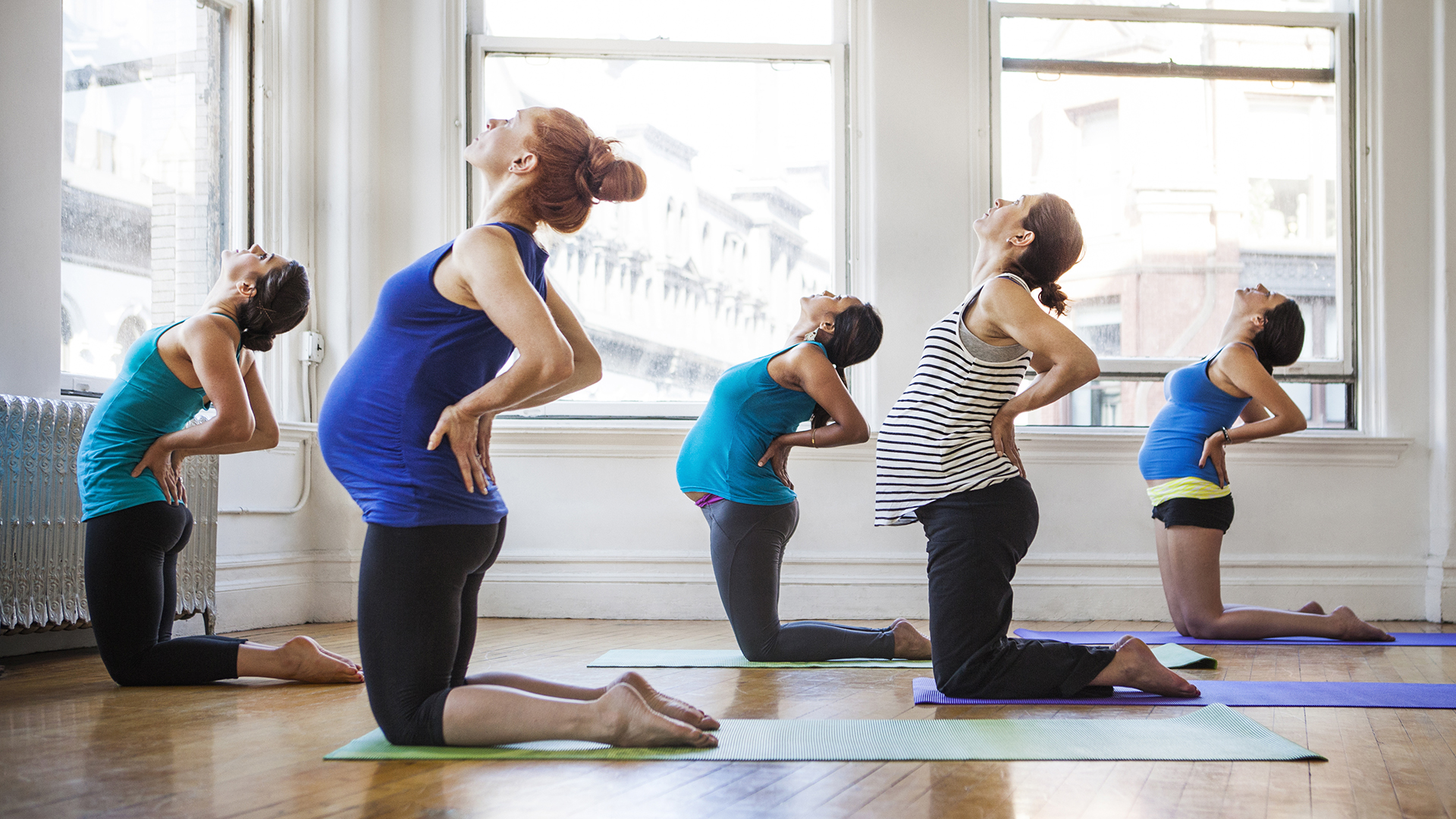Is yoga safe during pregnancy?
It might be a great way to keep fit, but is yoga safe during pregnancy? We ask the experts here

Is yoga safe during pregnancy? Whether you’re an experienced yogi or you just want to reap the benefits of exercise, yoga is a great way to keep mobile and active. Regular physical activity during pregnancy is essential to keep your body healthy and strong and prepared for birth – and yoga is one of the most beneficial forms of exercise.
But is yoga safe while you’re expecting? Advice from the American College of Obstetricians and Gynaecologists for moms-to-be is that modified yoga is a safe exercise during pregnancy. However, like with all new exercises during pregnancy, it’s recommended that you get the go-ahead from your health care professional before joining a class.
• Related: Best resistance bands
Yoga is a popular way for expectant moms to increase flexibility and strength, ease tension and stress and help relieve some common prenatal symptoms, from lower back pain to tight hips. And best of all, all you require is comfortable, loose-fitting clothes, a supportive maternity sports bra and one of the best yoga mats.
We spoke to the experts about everything you need to know about yoga during pregnancy, any potential issues that could occur and the benefits of yoga during pregnancy.
Yoga during pregnancy: What you need to know
Yoga supports your changing body
"Yoga can be a great way of maintaining strength and flexibility throughout your pregnancy," Leanne O'Brien Consultant Women's Health Physio at Six Physio told Live Science. It also strengthens and tones important muscle groups, especially your hip and abdominal core muscles and pelvic floor in preparation for labor and delivery.
"However, it’s important to be mindful of how far you’re stretching your joints when pregnant as you’ll naturally have more joint mobility due to a hormone called relaxin. This hormone encourages the joints around the pelvis to slacken slightly in preparation for vaginal delivery. Because of the additional mobility, you’re more prone to over-stretching and potentially straining the muscles or ligaments."
• Read more: Can yoga fix your posture?

Start doing yoga in your second trimester
Although there’s no evidence that yoga in your first trimester is harmful, it’s generally recommended that you should start in your second trimester. The British Wheel of Yoga recommends that you don’t attend a yoga class before you’re 15-weeks pregnant. "As your body changes during pregnancy, it’s important to adapt the practice as well. The most important thing is to start listening to what works and what doesn’t because this can change daily," Indaba Yoga Teacher, Giulia Lurza told Live Science.
Be aware of your changing body
"Your center of gravity changes during pregnancy to accommodate your growing bump, and this can make it more difficult to maintain your balance when completing more challenging exercises," O'Brien said. "Yoga is a great way of growing more accustomed to your changing center of gravity by allowing you to practice maintaining your balance in different positions. By challenging your balance, it helps to stimulate the neural pathways in your brain responsible for balance and helps you grow accustomed to your ever-changing center of gravity."
"This does mean that you may need to be more cautious in yoga classes and use blocks for support. You may also want to position yourself close to a wall in case you need to reach out and steady yourself," she said.
Which type of yoga is best during pregnancy?
Though there are a variety of different types of yoga, it’s important to do a class that is suitable for your nine-month stretch. Most classes typically involve physical postures (asanas), breathing exercises (pranayama) and relaxation.
"If you’re starting yoga for the first time whilst pregnant, I would recommend that you find a prenatal yoga class," suggested O'Brien. "Prenatal yoga classes have an adapted repertoire of exercises that prevent you from over-stretching the ligaments and muscles around the pelvis. The poses are less intense and focus more on balance and postural control. It’s incredibly important to remain strong and active during pregnancy, however, exercises often need to be adapted to ensure you can complete them pain-free," explained O'Brien.
If you practice yoga regularly, you may want to reduce the intensity of your sessions depending on how your body is feeling. Hatha and restorative classes are good options due to their gentle and slow-paced style. According to Lurza, Forrest yoga has a lot of variations for pregnancy. "It works on posture, builds up physical and emotional strength and helps you bond with your growing baby."
What are the benefits of pregnancy yoga?
There are a variety of different benefits of practicing yoga in pregnancy, including:
1. Pregnancy yoga helps relieve stress
Pregnancy can be a stressful time for some women and with mental health affecting physical health, yoga can be a good source of stress relief. "Yoga is a great way of alleviating stress and tension in the body, allowing you to connect with your thoughts and your breathing. Your breathing becomes shallower in the second and third trimester as the baby restricts your diaphragm from lowering effectively, so you naturally become breathless more quickly," O'Brien explained.
2. Pregnancy yoga improves your posture
Your posture changes during pregnancy as your pelvis tilts forward due to the weight of the bump. According to O'Brien this can encourage the upper back and shoulders to slouch forwards slightly, creating tension and stiffness in some women. "Moving the upper back and shoulders during a yoga session can alleviate this tension and ensure that the postural muscles are working to support your back."

3. Pregnancy yoga prepares your body for birth
"It’s important that women maintain their ability to squat and bend forwards comfortably during their pregnancy," O'Brien said. "Squatting forms the basis of the most effective birthing positions and is essential for daily movement. Yoga can be a great way of keeping you active and maintaining strength in the pelvis and leg muscles to assist with squatting and to improve your ability to bear down and push during labor. It also helps to strengthen the pelvic floor."
4. Pregnancy yoga improves your mood
We all know that exercise has a positive impact on our mental wellbeing, including reducing anxiety and depression. But yoga during pregnancy also has the ability to boost your mood. One study in the Nursing Science Quarterly journal found that pregnant women who took part in a 6-week yoga program during their second and third trimester felt stronger, more optimistic and had better overall wellbeing.
5. Pregnancy yoga promotes better sleep
It’s not uncommon for pregnant women to suffer from sleep problems due to fluctuating hormones, physical discomfort and worries about motherhood. But studies show that regular yoga practice can improve the quality of your sleep. One study published in the Complementary Therapies in Clinical Practice journal found that yoga reduces sleep disturbances, as well as anxiety and prenatal depression.
Pregnancy yoga safety tips
Here are some ways that you can practice yoga safely:
• Always tell your yoga teacher that you’re pregnant, so they can modify postures, and check that they’re trained to teach pregnant women. Or better still, go to a prenatal yoga class.
• Don’t exhaust yourself – if you can’t hold a conversation while moving, you’re working too hard.
• Always listen to your body – Mentally check in with how you’re feeling throughout the session to ensure you don’t over-stretch.
• Avoid yoga positions that involve lying flat on your back from 19 weeks onwards, O'Brien recommended. “This is to reduce the risk of your uterus pressing against the main blood vessels in the abdomen. Poses that place a lot of pressure on your abdomen, such as boat pose, should be avoided.”
Sign up for the Live Science daily newsletter now
Get the world’s most fascinating discoveries delivered straight to your inbox.
Karen Gordon is a freelance writer and web content editor with a special interest in health, and is based in the United Kingdom, As well as contributing to Live Science Karen has written for a variety of other publications, including NetDoctor, Patient.co.uk, Good Housekeeping, Prima, Cosmopolitan, Harper’s Bazaar and others.











